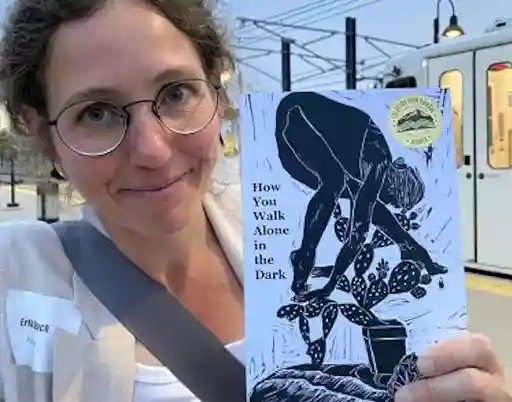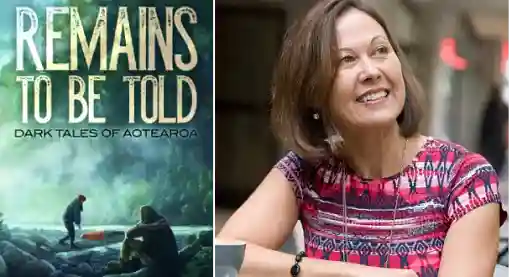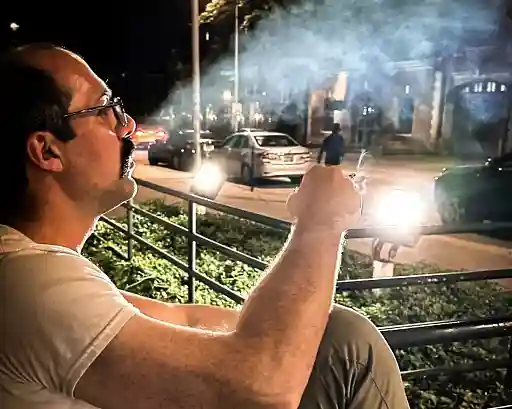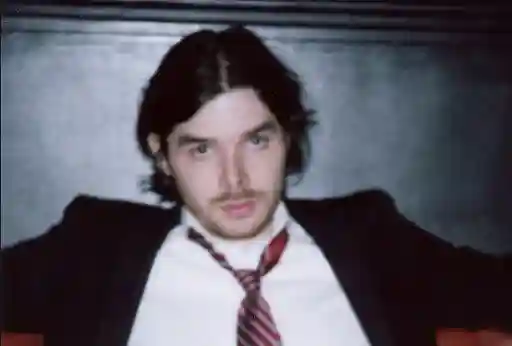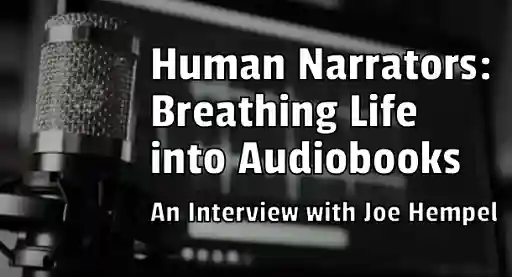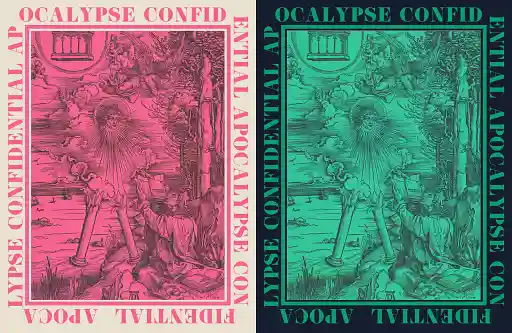A while back, I got an idea for a LitReactor workshop: Bring in the editor of a literary magazine and have them walk students through the submission process. It got backburnered, as things do. I was reminded of the idea when I saw the announcement for Steve Weddle's debut novel, Country Hardball.
Steve is the editor of NEEDLE: A Magazine of Noir, which has published writers like Chris F. Holm, Todd Robinson, Matthew McBride, and Frank Bill—as well as some folks in the LitReactor community, like Keith Rawson, Benoit Lelièvre, and Nik Korpon.
Steve knows good writing. More than that, he's a damn good writer himself. Country Hardball is a novel-in-stories, which is a risky proposition, but rather than coming off as disjointed, it reads like a mosaic. Shiny bits of story weave in and out, painting a lush portrait of the economic and social hardships in a rural, Southern town. It's funny and grim and poignant and just fantastically written.
This is why I'm glad Steve is teaching this class. Besides being a knowledgeable guy running a solid literary magazine, the dude can write. In anticipation of his class, Publish or Perish, I posed our ten questions to him:
What was the first story you ever wrote, and what happened to it?
I wrote little pieces of fiction growing up. In high school science class, I was bored as hell, so I wrote these little stories about how those of us in class had superpowers and defeated some of our teachers, who were trying to nuke orphanages. I got into some trouble once the stories started circulating. Didn’t make any money though, so it was a good lesson.
I wrote mostly poems in the LSU MFA program, though I did some screenwriting and fiction, as well. I wrote a story called, well, let’s not focus on the title. It wasn’t good. The whole story was these two guys in a diner, one too-smart guy and one heart-on-his-sleeve guy. There’s a charming waitress, too. I did another story with those two at a minor league baseball game, where an angry man nearly beats them to death. Those stories ran in the late 90s on a site called Zugernat.
When you sold your first piece of writing, how did you celebrate?
What’s odd is how little the world changes after a sale. I mean, you write a book or a story and you’re working day after day on it. Then it’s published somewhere or the book sells and, you know, it isn’t as if suddenly your drinks are free. It’s great, don’t misunderstand. But it’s this thing you did a year back or two and then there’s this attention for it, but you’ve done thirty things in the meantime. I don’t know. It’s weird. When I have a writing success, I usually have a drink. When I have a failure, I have three drinks.
Tell us about your process: Pen, paper, word processor, human blood when the moon is full... how do you write?
How I write depends on where I am in the process. I’ve tried white boards and software and anything that you can think about to help procrastinate. Oh, I should spend a few hours watching Scrivener videos so I can write. I should comparison shop for white boards this Saturday.
You know, what works best for me is to get ideas down in my notebook. I can write a page or two, then when I sit down at the computer, I have something to start with. It will lead to adding in words and sentences and piecing threads together.
When I start, I spend much more time with pen and paper. As I progress, I spend more time on the computer. I get up at four or five in the morning so I can have a couple hours to write before we get the kids ready and head off to work. When I’m at the front end of it, I’m jotting down notes and phrases, trying to get the material I’ll need to put it all together. When I’m in the middle of the writing, it’s more like typing. And when I’m getting things done, either first draft or a section, then I’m printing out pages and going through and carving away.
What's the biggest mistake you've made as a writer?
I probably sent off eleven tons of stories and poems to magazines I hadn’t researched well enough. I’d submit without reading where my story would end up. You don’t want to do that, because there’s always the small chance that your story will get accepted. And what happens if your 6,000-word story, a piece that’s pretty damn amazing and the best you’ll do for years, ends up next to some kid’s doggerel about his cat’s urinary tract? If you’re written something you want to send out, that must mean you’re proud of it. So you have to place it in a good home. I think some of my stuff early on just got sent out to whatever mag was listed next in the writing guide.
What kind of catharsis did you achieve from your latest work?
You have to put it in there, you know? All the dreck from inside you. The fear and the pain, but the good stuff, too. Even the goofy good stuff. Like when you’re on the hotel balcony and the sun comes up and you’re thinking how silly and clichéd it is, but it’s still kinda wonderful to look at and watch and you just kinda take it in, you know? Like there’s something there, something you can’t really explain, and something that would sound ridiculous if you tried to tell someone about. But it’s this thing and it’s there and it’s everything, right? And then it’s gone and you’re left with just trying to think about it, to get back to it. Like a dream you wake up from and can’t reenter. That’s what it’s like. You get that feeling, that pouring out of emotion. And you can “cleanse” yourself by getting that on the page. It’s like the Kafka line, how books are the axe for the frozen sea inside of us. They break us open, release all that dreck, get us in touch with the stupid beach sunrise or maybe a close friend’s death that you still haven’t been able to process for five years. And just for a second everything is fine.
Writing can be like that. All the characters taking all the darkness from you, letting them dig in and fight with it. My book that’s coming out, that’s got so many people fighting through such bad times, but the point is they keep fighting. Their pain is your pain, the writer’s. If you’ve done it right, it’s also the reader’s pain. The point is you have to grab Kafka’s axe and have at it, you know?
Which fictional character would you most like to have a drink with, and why?
Jim Dixon from the Kingsley Amis book would be a good choice, because he’d probably accidentally set the bar on fire, which could be fun. It’s been seventeen or eighteen years since I’ve been in a good bar fire. If my wife and I are drinking, I think the obvious pick is Nick and Nora, because we’d have a hilarious time. Maybe the people from SportsNight? That was a good show. If it’s with someone, I’d like it to be a light, fun time. I don’t need a sad, mean drunk with me. I’m already bringing myself to the table, you know.
Where do you buy your books?
I just bought Kent Wascom’s new one from Fountain Bookstore in Richmond. That’s my most recent purchase. Before that, through the mail I got the WPA Guide to Arkansas in the 1930 from Gardner’s in Tulsa.
I like talking to people about good books and going to readings and browsing stacks. There’s a great used store in Charlottesville called Daedalus Books. They have a basement where I was able to find eight of the last ten Best American Short Stories collections. Nothing like that.
How do you handle a bad review of your work?
There’s the option of thinking that you’ve now stepped outside of your audience. You’ll see this often now, especially online, in which people say they didn’t like your book because they had expected a sci-fi romance and the book just didn’t deliver that. And you’ll be puzzled because your book is clearly identified as a historical mystery set in 1950s Wichita. So many of the people who don’t like the books they review seem to be upset that the book isn’t the book they thought it was going to be. You have to keep that in mind, I think.
Also, you need to talk about people who hate your book by using the second person. It helps to distance the pain.
Also, I cry quite a bit.
What's the worst advice you hear authors give writers?
It’s really the type of advice that most bugs me. See, the generic stuff is so useless. Write what you know. Write every day. Read.
And then, when folks get specific, the advice is a variation on “here’s how I write, which is how you should write.” That’s the kind that bugs me. When people say you have to write every single day. Um, you don’t. When people say you can’t introduce a new character after the first 100 pages. Meh. Look, if someone says your book doesn’t work, they usually mean it doesn’t work for them. If someone comes along who wants a doorstop, maybe it works for them. Or maybe they want that sci-fi romance. I dunno. Any prescriptive advice tends to be crap. Tell me what worked for you or how you did a thing, and let me modify that for myself. Descriptive works better than prescriptive for me. Neil Gaiman has a line about when people tell you that your book doesn’t work, they’re right. But when they tell you why or how to fix it, they’re wrong. That makes sense.
Oh, and saying that writers have to go to writers’ conferences or Tweet or Facebook. That’s just silly. Don’t do it if you don’t want to. Don’t do it because you’re told it’s good to market yourself that way. It isn’t. You’ll look like an ass. If you enjoy Pinterest or Twitter, use them. Don’t force yourself into something you’re not comfortable with. You will fail. Maybe that’s too prescriptive. I’ve just seen folks try and fail. They hop on Twitter to promote their books and that’s not what social media is good at. If you want to be social, that’s great. If you want advertise your book, better ways are available.
WILDCARD: NEEDLE is only available in print, whereas a lot of fiction magazines are skewing toward digital. Why go with a print-only product?
I think you answered that one in the question. Many fiction magazines are digital. And they’re doing a great job. Plots with Guns and Shotgun Honey and Thuglit and many others are available online and on Kindle. And I read them all the time. But I wanted to put out a magazine that you could hold in your hands, set on your shelves. Something that you could pick up in two years and re-read. Something you could leave behind in your vacation cabin.
It was good to see authors at NoirCon signing their copies of NEEDLE when we first came out. That was cool.
I like getting a magazine in the mail. I liked receiving my contributor’s copy of THE OLD RED KIMONO many years ago. I liked reading most of the other stories in that copy, though the poem about the cat’s urinary tract infection was not my favorite.
I like ink on paper and I wanted to be able to spread around stories by Nathan Singer, Hilary Davidson, Patti Abbott and Frank Bill and others in that first issue.
The new issue, with Dennis Tafoya and Sarah Weinman and others, is another example of why print. We can lay things out differently than you’d format on the web. Online, you can do certain things with art, while print allows you other options.
Also, having a magazine with covers done by Scott Morse (Catwoman, Sam & Twitch, Pixar) is pretty damn cool.

About the author
Rob Hart is the class director at LitReactor. His latest novel, The Paradox Hotel, will be released on Feb. 22 by Ballantine. He also wrote The Warehouse, which sold in more than 20 languages and was optioned for film by Ron Howard. Other titles include the Ash McKenna crime series, the short story collection Take-Out, and Scott Free with James Patterson. Find more at www.robwhart.com.
